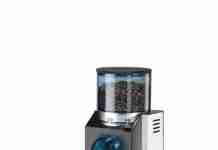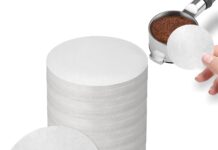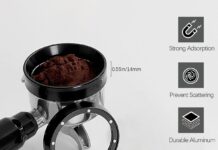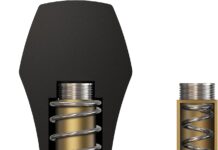In the world of coffee brewing, precision is key. The slightest difference in the ratio of coffee grounds to water can drastically alter the taste and quality of the final cup. That’s why many coffee enthusiasts have turned to the practice of weighing their coffee for precise extractions. By using a digital scale to measure the exact amount of coffee grounds, they ensure that each brew is consistent and perfectly balanced. In this article, we will explore the benefits of weighing coffee and how it can elevate your coffee brewing experience to new heights.
Why Weighing Coffee is Important
The Importance of Consistency
In the world of coffee brewing, consistency is key. Weighing your coffee consistently and accurately ensures that each cup you brew is of the highest quality. By using the same weight of coffee each time, you can control the flavor and strength of your brew.
Consistency is especially important for those who brew coffee professionally or for those who enjoy experimenting with various brewing methods. When you weigh your coffee, you can make precise adjustments to achieve the desired taste, whether it’s a strong and bold espresso or a delicate and nuanced pour-over.
Understanding Extraction Ratios
To fully appreciate the value of weighing coffee, it’s essential to understand extraction ratios. Extraction ratio refers to the amount of coffee solids extracted from the grounds in relation to the amount of water used. This ratio affects the flavor and strength of your brew.
By weighing your coffee and water, you can easily calculate the extraction ratio. This allows you to experiment with different ratios to find the perfect balance for your taste preferences. When you measure by weight, you have a quantitative measurement that helps you adjust the extraction process and achieve optimal results.
Choosing the Right Equipment
Digital Scales
When it comes to weighing coffee accurately, digital scales are the go-to choice for most coffee enthusiasts. These scales offer precise measurements down to the decimal point, allowing you to achieve consistency in your brewing process.
Look for scales with a high resolution, ideally measuring to at least 0.1 grams. This level of precision ensures that you can make even the smallest adjustments to your recipe. Additionally, opt for scales with a large enough capacity to accommodate the size of your brewing vessel.
Espresso Scales
For those who specialize in brewing espresso, espresso scales are specifically designed with the needs of espresso enthusiasts in mind. These scales are typically equipped with timers, allowing you to monitor the brewing time accurately.
Espresso scales often have a more compact size, making them convenient for use with smaller espresso machines. Look for scales that are durable, heat-resistant, and offer the level of precision you need for your espresso brewing.
Brewing Scales
If you prefer brewing methods such as pour-over or French press, brewing scales are an excellent choice. These scales are typically larger and can accommodate larger brewing vessels while still providing precise measurements.
Look for brewing scales that have a built-in timer, as timing is crucial for techniques like pour-over brewing. Additionally, consider scales with a tare function, which allows you to zero out the weight of your brewing vessel or container.
Understanding the Coffee-to-Water Ratio
Calculating the Ideal Ratio
The coffee-to-water ratio is a crucial factor in achieving the desired flavor and strength in your brew. By weighing both your coffee and water, you can calculate and adjust this ratio accurately.
To calculate the ideal ratio, start with a baseline measurement of around 1:15 – 1 gram of coffee for every 15 grams of water. From there, you can adjust based on personal preference. Some coffee enthusiasts prefer a stronger cup and opt for a 1:13 ratio, while others prefer a milder cup and choose a 1:17 ratio.
By weighing your coffee and water, you can experiment with different ratios and find the one that suits your taste perfectly.
Adjusting for Personal Preference
Weighing your coffee and water also allows you to adjust for personal preference. Whether you enjoy a bolder and more robust brew or a lighter and more delicate cup, you can easily modify the ratio to achieve your desired flavor profile.
When you measure by weight, you have full control over the strength and taste of your coffee. This level of precision enables you to replicate your favorite brew consistently while also giving you the flexibility to experiment with different ratios.
The Benefits of Weighing Coffee
Improved Consistency
One of the primary advantages of weighing your coffee is improved consistency. By using the same weight of coffee each time, you can ensure that every cup has a consistent taste. This is particularly important for professionals in the coffee industry who need to provide a consistent experience for their customers.
Consistency is also valuable for coffee enthusiasts who enjoy trying different brewing methods. By weighing your coffee, you can make precise adjustments to replicate the same taste with each brew, regardless of the method used. This consistency enhances your coffee brewing journey and allows you to refine your techniques.
Optimal Extraction
Weighing your coffee is key to achieving optimal extraction. Extraction refers to the process of dissolving the coffee solids in water, extracting the flavor compounds we love. By measuring the weight of coffee precisely, you can adjust factors such as grind size, brewing time, and water temperature to achieve the best possible extraction.
When you eyeball or measure by volume, you may end up with inconsistent results as the density of coffee can vary. However, when you weigh your coffee, you have a more accurate measure of the coffee-to-water ratio, which ensures that each particle of coffee is treated equally during the brewing process. This results in a more balanced and flavorful cup of coffee.
Reproducibility
Weighing your coffee allows you to reproduce your favorite brews. Once you find the perfect recipe and achieve the desired taste, you can easily recreate it by measuring your coffee consistently. This reproducibility is essential for those who love to share their brewing techniques or simply want to enjoy a consistently excellent cup of coffee.
With weighing, you can write down the exact measurements and steps of your brewing process, making it easy to replicate your favorite recipes in the future. This consistency also gives you peace of mind, knowing that each time you brew, you’ll have a cup of coffee that meets your high standards.
Tips for Accurate Weighing
Using a Scale with High Resolution
To ensure accurate weighing, it’s important to use a scale with high resolution. Look for scales that can measure weight down to 0.1 grams or even smaller increments. This level of precision allows you to make precise adjustments to your recipe and achieve the desired taste.
Taring the Scale
Taring the scale is a useful technique when weighing coffee. Taring means resetting the scale to zero, regardless of the weight of the container or vessel on it. This allows you to measure only the weight of the coffee without including the weight of the brewing equipment.
To tare the scale, simply place your empty brewing vessel on the scale and press the tare button. The scale will reset to zero, and you can add your coffee to measure its weight accurately.
Weighing Coffee Before and After Grinding
If you grind your coffee beans at home, it’s crucial to weigh them before and after grinding. Coffee beans lose some weight during the grinding process due to oxidation and the release of volatile compounds. By weighing your coffee before and after grinding, you can ensure that you’re using the correct amount of grounds for your desired cup.
Grinding right before brewing helps to preserve the aroma and flavor of the coffee, ensuring a more vibrant and enjoyable cup. Weighing before and after grinding allows you to adjust your measurements accordingly, compensating for any weight loss during the grinding process.
Measuring Coffee by Weight vs. Volume
Consistency and Accuracy
Measuring coffee by weight offers consistency and accuracy in your brewing. While using scoops or tablespoons can be convenient, these volume measurements can vary depending on factors such as the coffee grind size and density.
Measuring by weight eliminates these variables, ensuring that you can reproduce your desired results with ease. The accuracy provided by weighing enables you to make precise adjustments to create a consistently delicious cup of coffee each time.
Accounting for Differences in Bean Size and Grind Coarseness
Using volume measurements can be particularly challenging when working with different coffee beans or grind coarseness. Beans can vary in size and density, which can affect the volume in a scoop or tablespoon.
Weighing your coffee accounts for these differences, allowing you to achieve the desired strength and flavor regardless of the bean size or grind coarseness. By focusing on weight, you have a more reliable and standardized approach to brewing consistently excellent coffee.
Understanding the Impact of Different Coffee Origins and Roast Levels
Bean Density and Weight
Different coffee origins and roast levels can significantly impact the density and weight of the beans. Lighter roasts tend to be denser and heavier, while darker roasts are often less dense and lighter.
Weighing your coffee allows you to account for these variations and ensure that you’re using the correct amount of grounds for your desired strength. By adjusting the ratio based on the density and weight of the beans, you can achieve a balanced and flavorful cup, regardless of the origin or roast level.
Differences in Extraction Time
Coffee beans from different origins and roast levels may require different extraction times to reach their optimal flavor. Weighing your coffee provides a consistent starting point, allowing you to control the extraction time precisely.
By experimenting and noting the extraction time for each coffee, you can fine-tune your brewing process to highlight the unique characteristics and flavors of each bean. Weighing becomes the foundation for achieving the best possible extraction, giving you the opportunity to explore and appreciate the diversity of coffee.
The Role of Brewing Method and Equipment
Adjusting Extraction with Different Methods
The brewing method you use can influence the extraction process, and weighing your coffee allows you to adjust accordingly. Each brewing method requires a specific balance between the coffee-to-water ratio, grind size, and extraction time.
By weighing your coffee, you can ensure that you’re using the correct amount of coffee grounds for each brewing method. Additionally, you can adjust the grind size and extraction time based on the specific characteristics of your chosen method. Weighing empowers you to optimize your brewing method and achieve the best possible results.
Adapting to Various Brewing Equipment
Whether you’re using a French press, pour-over, or espresso machine, weighing your coffee allows you to adapt to different brewing equipment easily. Different equipment may require different brewing parameters, such as grind size or water temperature.
By measuring by weight, you have a consistent reference point that transcends the type of equipment you’re using. This enables you to maintain consistency in your coffee brewing, regardless of the specific tools you have at your disposal.
Using Weight to Guide Grind Size and Extraction Time
Finding the Ideal Grind Size
Grind size plays a crucial role in coffee extraction. By weighing your coffee and experimenting with different grind sizes, you can find the ideal setting for your desired flavor profile.
When you weigh your coffee, you can adjust the extraction time by modifying the grind size. For example, if you find that your brew tastes over-extracted, you can try a coarser grind to reduce the extraction time. Conversely, if your brew tastes under-extracted, you can try a finer grind to increase the extraction time. Weighing your coffee empowers you to fine-tune the grind size and achieve a balanced extraction.
Determining the Optimal Extraction Time
Weighing your coffee also helps you determine the optimal extraction time. By monitoring the time it takes to brew your coffee and adjusting factors such as grind size and water temperature, you can find the sweet spot for your desired taste.
With a higher weight of coffee, the extraction time may need to be adjusted to ensure that you’re not under- or over-extracting. Weighing allows you to make precise adjustments to the extraction time, helping you achieve the perfect balance of flavors in your cup.
Common Mistakes to Avoid When Weighing Coffee
Not Using a Scale at All
One of the biggest mistakes coffee enthusiasts can make is not using a scale at all. Eyeballing or using volume measurements may lead to inconsistent results, making it difficult to replicate your favorite brews.
Investing in a reliable digital scale is a game-changer for anyone serious about brewing exceptional coffee. It provides the accuracy and precision needed to achieve the desired taste consistently.
Measuring Inconsistently
Another common mistake when weighing coffee is measuring inconsistently. It’s important to establish a consistent method of measuring, whether it’s by grams or ounces. Being consistent with your measurement units ensures that you can accurately replicate your favorite brews.
Additionally, consistency in the brewing process itself is crucial. Keep your technique consistent, including factors such as water temperature, brewing time, and pour speed. All of these elements work together to create a well-balanced cup of coffee.
Ignoring the Impact of Bean Freshness
While weighing your coffee is essential for precise extractions, it’s also important to consider the freshness of your coffee beans. Coffee beans lose freshness over time, and this can affect the flavors and aromas in your cup.
To ensure the best possible result, make sure you use freshly roasted beans. Weighing your coffee can help you adjust the coffee-to-water ratio to compensate for variations in freshness and bring out the best in your beans.
In conclusion, weighing your coffee is a game-changer for achieving precise extractions and a consistently excellent cup of coffee. It provides the foundation for experimentation, allowing you to adjust variables such as the coffee-to-water ratio, grind size, and extraction time. By investing in a reliable digital scale and maintaining consistency in your brewing process, you can unlock the full potential of your coffee and elevate your brewing experience. So grab your scale, start weighing, and enjoy the journey of exploring the world of coffee flavors.
































